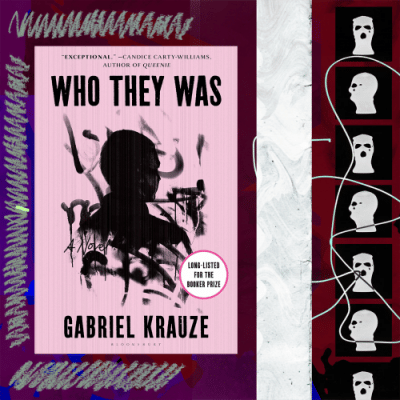‘Who They Was’: A powerful voice from the rough streets of London

Gabriel Krauze is not your average Booker-longlisted author. He rocks streetwear, Air Maxes, gangster chains, and most importantly a big grin that unveils his signature "iced grillz"—a statement of one's journey on the streets. Who They Was (4th Estate, 2020), Krauze's debut novel, is written in British-Jamaican patois, and is an auto-fictional account that mirrors his life as a London gang member in South Kilburn at the time of his pursuing a BA in English Literature at the reputed Queen Mary University. It is the marriage of two polar worlds, academia and violence, that strips London in all its mixed-up glory through a narrative that is brutally blunt and heavily comprised of urban slang. So, how does a book like that, defying all odds, transcend the high aesthetic values of literature and find itself a place among the best? Art in its truest form should be experimental, it should hold the accountability of realities beyond written words, and Who They Was is essentially that; a book that will pave the way for a new genre—I dare to call it: 'Thug Literature'.
This unconventional novel starts on a high, as Snoopz (Krauze's street name) alongside his partner Gotti attempt a robbery in broad daylight. Snoopz spends his days "bunning zoots"(smoking marijuana), attempting "eats" (robbery), selling "bujj" (heroin) to "nittys" (druggies), facing trial and jail time—all contributing to an individual being excluded from the domain of the political life; and concurrently, he is attending seminars on Nietzsche, submitting 3,000 words term papers, and trying to bridge the gap between him and his Polish immigrant parents. This conflict of the hero and the anti-hero propounds the intricacies and grim realities of the world we live in today. It may seem like there is a deep fetishisation of violence and gang life here, but in a way it gives voice to the criminally marginalised, to those who are included but in a form of exclusion. What it paints truly is an image of a bare life with rights that can be taken away within the blink of an eye.
It does, however, raise concern for cultural appropriation as the British-Jamaican patois is employed by an author of Polish descent. If we were to consider a positive representation of the marginalised culture, then Krauze does justice to it. Snoopz recognises and puts forth his privileges of being white. He is aware of the fact that he received a shorter jail sentence in contrast to what someone of colour may have received, and through a predominantly slang narrative, the novel dismantles preconceived prejudices as Snoopz is automatically assumed to be of mixed race due to his gang involvements. Krauze criticises the media for its inauthentic and racist portrayal of street life, and politicians for deliberately not acknowledging the conditions that make violence the norm.
Gabriel Krauze, now in his 30s, has left that world behind him, and through his Booker longlisted-debut novel, has constructed a narrative that captures the truest and rawest essence of gang life. Who They Was is unquestionably a work of art, not just because of how it paints a picture of a world so foreign to us, but rather because of how it positively represents the marginalised cultures and gives hope to a whole generation. Krauze has established something that has not been adequately discussed—which is the fact that he has created a distinctive voice which serves as an emblem of revival, and creates a way for more literature of the same. 'Thug Literature', as I like to call it, will help youths make sense of their surroundings through reading and writing, and reclaim what has been lost living in the conditions created by the same society that tries to exclude them.
Labib Mahmud is a freelance writer and designer. His interests lie in subversive literature and discourse. Reach him at [email protected] or
@labib.mahmudd on Instagram.

 For all latest news, follow The Daily Star's Google News channel.
For all latest news, follow The Daily Star's Google News channel. 



Comments